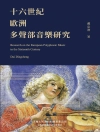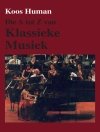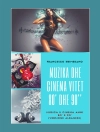
A reflection on the idea of the ‘composer’ in the medieval period, including a study of the individuals and groups active in the creation of medieval music.
The modern concept of the individual composer is central to accounts of Western music, and continues to represent a critical field of research in musicology. However, this approach cannot be straightforwardly transposed to the Middle Ages, as it does not reflect the complex creative realities of medieval composition, and conflicts with the evidence from extant sources and documentation.
This collection, the first full-length study of the subject, questions and revises the concept of the composer for the medieval period through five thematic parts: ‘Historiographical Critique’, ‘Ascriptions, Attributions, Signatures’, ‘Medieval Constructions of Authority and of the Authorial Persona’, ‘The Composing Workshop’, and ‘Composers as Communities’. Spanning a period from the seventh century to the early Renaissance, and taking in different cultural and geographical areas of Western Europe, the essays examine a range of repertoires and fields – plainchant, Latin devotional song, medieval motet, trouvère song,
Ars nova, drama, and illuminated Gothic manuscripts – in diverse contexts, from clerical communities, to princely courts and lay workshops. Overall, the new perspectives here shed fresh light on the musical practices and repertoires of the Middle Ages.
विषयसूची
Introduction: From Composer to Composers
Gaël Saint-Cricq, with Anne-Zoé Rillon-Marne
I. Historiographical Critique
1. Gregory and Friends: Plural Authorities in the History of Romano-Frankish Chant
Henry Parkes
2. Inspiration vs Attribution: The Voice of the
Planctus ante nescia
Charles E. Brewer
3. Petrus de Cruce, Philippe de Vitry, Notational Epochs, and the Spans of Human Lives
Anna Zayaruznaya
II. Ascriptions, Attributions, Signatures
4. Composing in the Late Middle Ages: Paradoxes in Anonymity and Attributions
Margaret Bent
5. Questions of Signatures and Authorship: Some Elusive Scribes and Artists in Late Thirteenth- and Early Fourteenth-Century France
Alison Stones
III. Medieval Constructions of Authority and of the Authorial Persona
6. Encoded Signatures: Devotion and Artistic Self-Presentation in the Motet
Ferre solet (1373)
Manon Louviot
7. The (Critical) Reception of Adam de la Halle’s Motets by Petrus de Cruce and His Circle
Catherine A. Bradley
IV. The Composing Workshop
8. In the Writing Workshop: Composing for the Stage in French during the Long Fifteenth Century
Estelle Doudet
9.
Facere,
Componere,
Invenire: Reassembling the Composer in the Long Thirteenth Century
Mark Everist
V. Composers as Communities 10. W. de Wicumbe as a Composer of Alleluya Rondelli
Karen Desmond
11. Rethinking Trouvère: Biographical and Historical Perspectives on Thirteenth-Century Musical Culture
Brianne Dolce
12. Encounters of Poets, Composers and Performers in
Ars Nova Song: The Case of Jaquet de Noyon, Minstrel, and the Ballade
Puis que je sui fumeux
Yolanda Plumley
General bibliography
Index of sources
Index of proper nouns and places
Index of works
लेखक के बारे में
MARGARET BENT is an Emeritus Fellow of All Souls College, Oxford.










